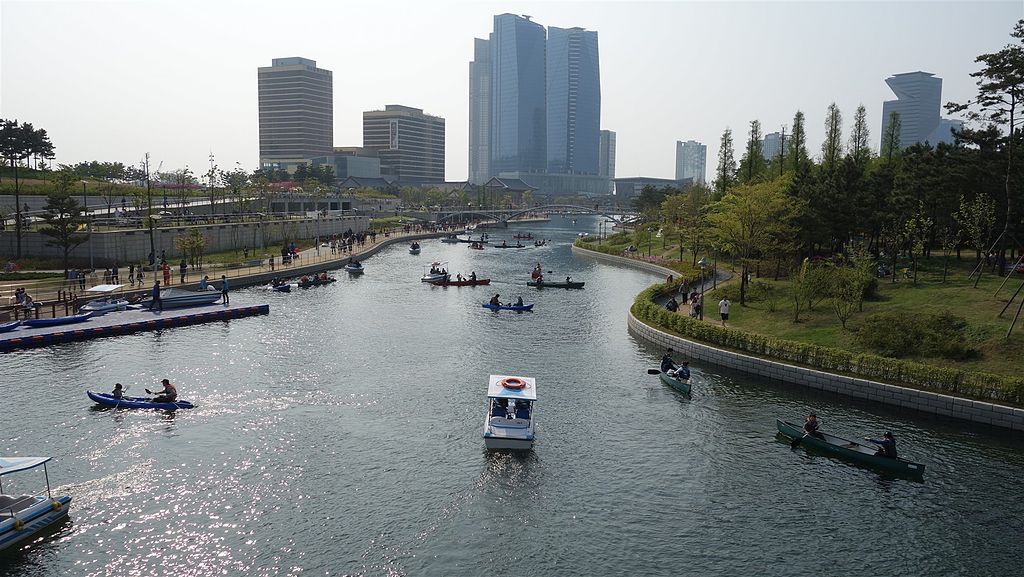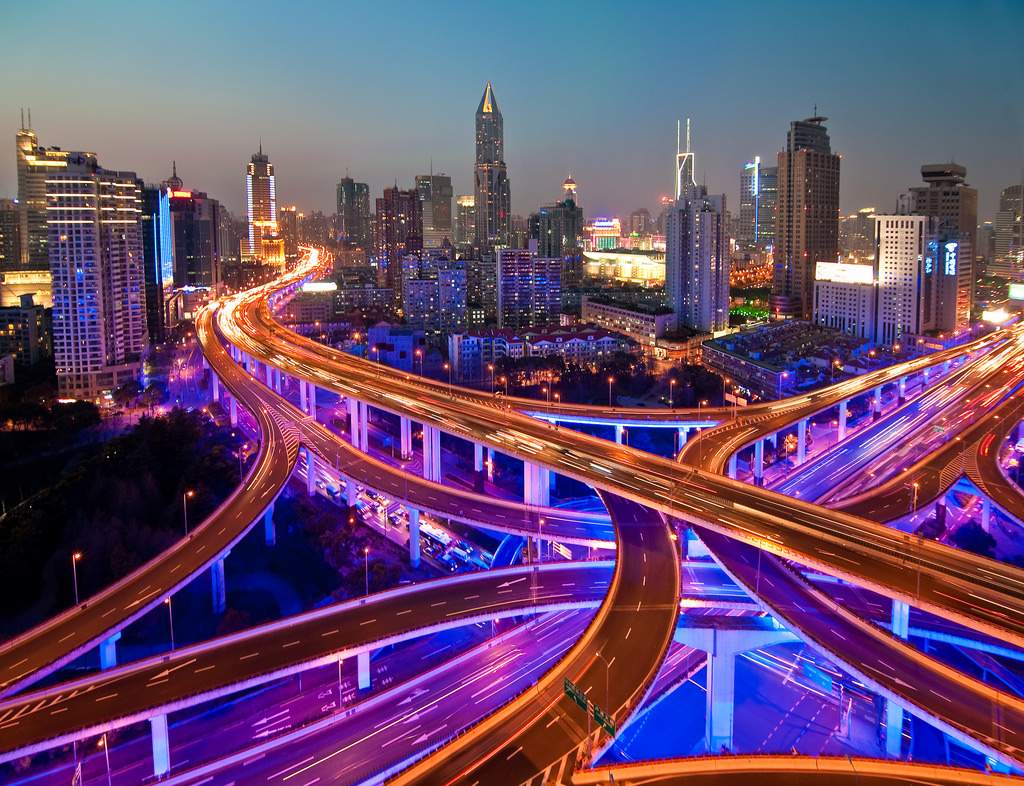Loosely defined, a smart city uses information technologies to improve services and share information with the public. But can so-called “smart cities” deliver the solutions that the world’s urbanites need?
Where are they? “The idea has really caught on in Asia,” says Assistant Professor
Joo Yu Min from the Lee Kuan Yew School of public policy.
 The lake at Central Park, Songdo IBD, Incheon, Korea (Photo: Ken Eckert)
The lake at Central Park, Songdo IBD, Incheon, Korea (Photo: Ken Eckert) South Korea has pursued a smart city most aggressively, establishing Songdo, an entirely new city near the capital Seoul. It’s a car-free area, with 40% green space and dozens of kilometres of cycling routes. The city runs on renewables and energy generated from processed from human waste.
It’s supposed to be home to 300,000 people, although it hasn’t filled up yet. An IT network manages energy use in every building, complemented by windows that reduce incoming sunlight, LED lights and water-cooled air conditioning systems. These are solutions that could reduce energy consumption by 30%.
The Philippines is also building an entirely new city, near Manila, aimed at relieving some of the pressure on one of Asia’s most congested megacities. But
Smart City solutions don’t all need to be megaprojects. Any solution that uses technology to make urban life easier or more efficient counts.
Buzzword nonsense? Many cities throughout the region are eager to jump on the bandwagon, or to simply apply the tag to any new program within their city limits.
Twenty-six cities from the 10 ASEAN countries were named pilot cities for the ASEAN Smart Cities Network earlier this year. Deloitte says there
are 500 in China alone. It seems just about every city thinks it’s smart. So, is it just a cheap buzzword for municipal governments seeking to score points with voters?
 Shanghai is using the “Citizen Cloud” platform and app to streamline government services, and encourages the internet economy and concepts like shared mobility to tackle problems like traffic congestion. (Photo: whiz-ka)
Shanghai is using the “Citizen Cloud” platform and app to streamline government services, and encourages the internet economy and concepts like shared mobility to tackle problems like traffic congestion. (Photo: whiz-ka) “Of course some will see it that way. They also feel as if they have to brand themselves as smart cities, just to give off the impression that they’re following the trend,” said Dr Joo. But she says good urban solutions are more than just easy PR, and they can make a huge difference.
The McKinsey Global Institute, for example, says the benefits for Southeast Asia alone could mean 5,000 fewer traffic deaths a year and 270,000 kilotons less greenhouse gases in the atmosphere. It could also save a whopping 8 million man-years in commuting time and reduce the region’s disease burden by 12 million disability-adjusted life years.
In the process, smart cities could add an extra 1.5 million jobs and save as much as US$16 billion annually through better housing solutions and lower energy bills.
So it’s all good news? Not exactly. There’s no doubt that cities can be made better through technology, and they’ll need these solutions as they grow. The problem, says Joo, is that sometimes smart city solutions are exported from one city to another, with little thought for how they might be used locally.
“One of the underlying reasons is to help IT companies to find export markets,” she said.
Singapore recently experimented with high tech bins, which are solar powered, have sensors that tell their cleaners how full they are, and come with compactors which expand capacity. The labour-saving bins make financial sense in Singapore, but they might not make sense in Mumbai, where labour is plentiful.
 Singapore's Supertrees at Gardens by the Bay generate solar power, collect rainwater and help ventilate air conditioned conservatories. They've become visible symbols of Singapore's 'smart nation' status, an initiative that includes a virtual, 3D model of the city for use by urban planners.
Singapore's Supertrees at Gardens by the Bay generate solar power, collect rainwater and help ventilate air conditioned conservatories. They've become visible symbols of Singapore's 'smart nation' status, an initiative that includes a virtual, 3D model of the city for use by urban planners. And cybersecurity is an issue too for heavily tech-dependent solutions. If a traffic management system is exported from Korea to Indonesia, for example, the local government would need to consider both the benefits of a new system and the cost of hiring IT professionals to defend it from potential attack.
A role for government Smart city solutions are becoming ever more plentiful, and it’s likely they’ll get cheaper as they become more common. But the best solutions are tailored to local needs, and that’s where governments can make a difference.
“The role of the government is very important, because you do have to be in control of your local context,” says Joo.
There’s no doubt that cities will need smart solutions, but municipal governments will need to pick carefully for their cities to reap the benefits.